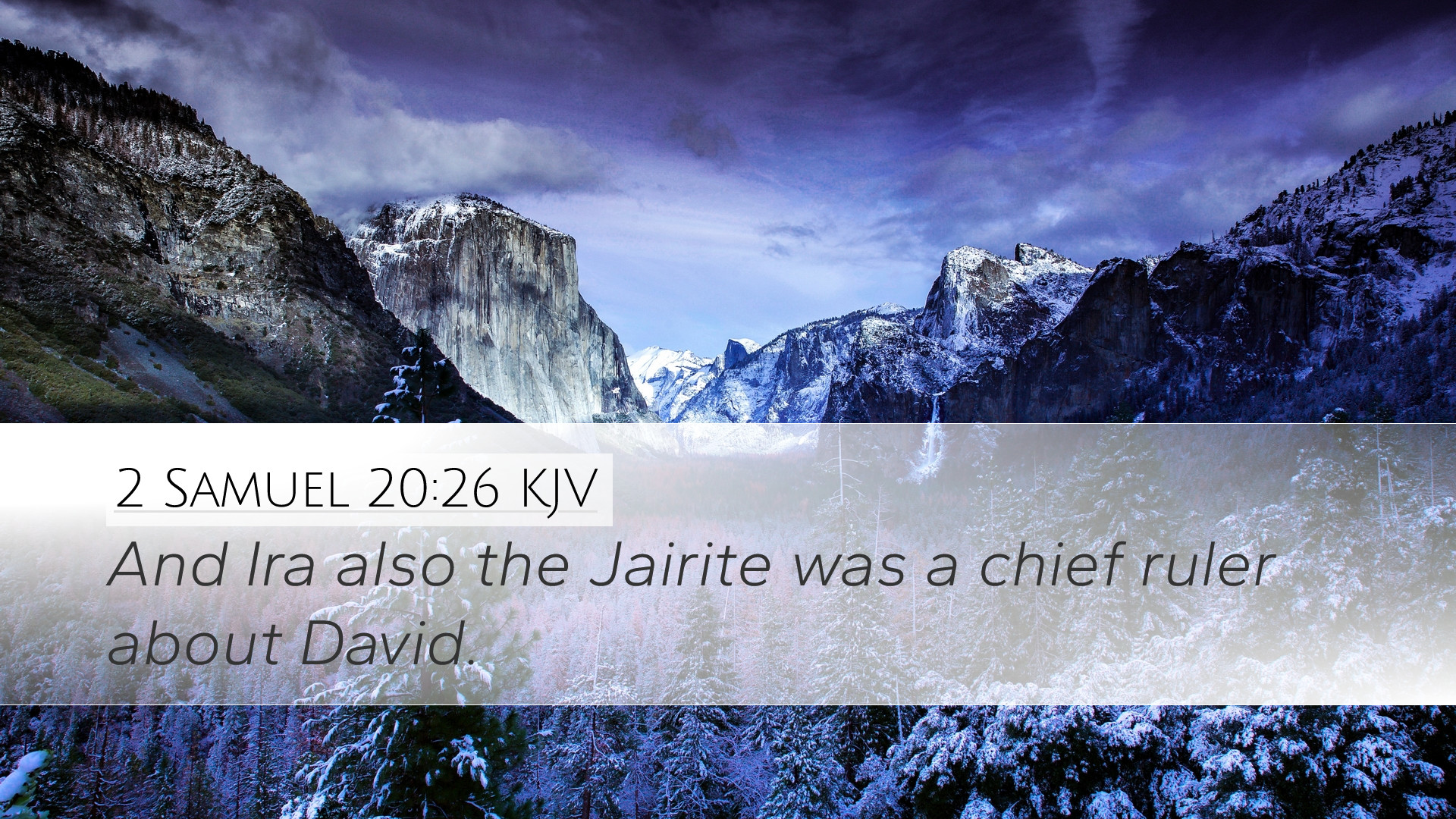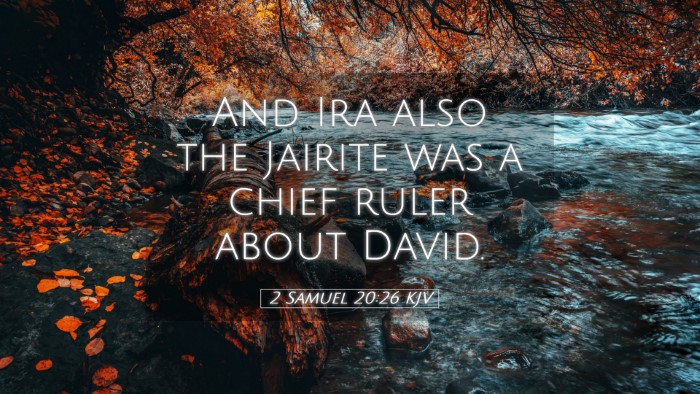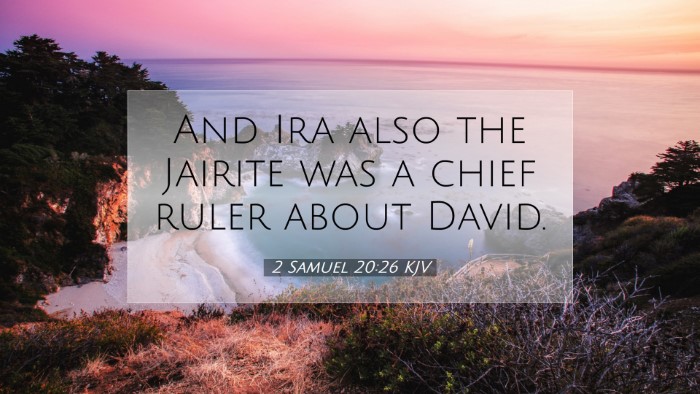Exploration and Commentary on 2 Samuel 20:26
Verse Context: 2 Samuel 20:26 states: "And Ittai the Gittite was captain of the band of the mighty men which belonged to David.” This verse concludes a pivotal chapter in the narrative of King David, illustrating the deep loyalty and multifaceted relationships surrounding his reign.
Overview of 2 Samuel 20
This chapter describes the rebellion led by Sheba, son of Bichri, and the subsequent actions taken by David’s forces to quell this insurrection. It highlights the political instability during David's kingship and the loyalty of the mighty men who stood with him. The mention of Ittai the Gittite is significant, especially considering his foreign origins and rise to a position of trust within David's military hierarchy.
Commentary Insights
Matthew Henry's Commentary
Matthew Henry provides a comprehensive analysis of the events surrounding the leadership and the trust within David’s camp. He emphasizes Ittai’s exemplary conduct and loyalty. Coming from Gath, Ittai represents the inclusion of foreigners into Israel’s covenant community, marking a transition in Israel’s perception of leadership based on merit rather than mere lineage. Henry notes that the phrase "captain of the band of the mighty men" underscores Ittai's significant military standing, illustrating that God’s favor is not bound by nationality.
- Inclusivity and Leadership: Henry points out that the acceptance of Ittai reflects a broader divine plan, showing God’s intention to unify various peoples through David. His loyalty is contrasted with the treachery of Absalom, highlighting themes of fidelity amidst chaos.
- Military Prowess: The title "captain of the band of the mighty men" indicates Ittai’s skills and the high regard in which he is held, which serves as a reminder that divine favor often manifests in unexpected ways.
Albert Barnes' Notes
Albert Barnes elaborates that Ittai the Gittite's presence as a captain reflects the loyalty of those who chose David over Absalom. Barnes postulates that this loyalty is a model for contemporary believers, drawing a parallel between loyalty to Christ and the loyalty shown by Ittai amidst a treasonous atmosphere.
- Symbol of Loyalty: Barnes paints Ittai as a symbol for Christians, emphasizing that believers often face choices similar to his - whether to follow a familiar path or to align with God’s chosen leader, especially amidst societal turmoil.
- Divine Sovereignty: He underscores that God’s providential hand guides the course of history, as seen in David’s reign, reinforcing that Ittai’s loyalty exemplifies God’s design for unity and protection among His people.
Adam Clarke's Commentary
Adam Clarke’s take on this verse centers on the cultural implications behind Ittai’s role. Clarke stresses that the mention of a Philistine leading the forces of Israel is noteworthy and significant. He discusses the transformation of the social paradigm occurring in Israel, where former enemies became allies under David's kingship.
- Conversion and Loyalty: Clarke asserts that Ittai’s story serves as an inspiration to those who feel like outsiders in their spiritual journey. His loyalty emerges from a genuine understanding of God’s purpose through David, reinforcing the notion that faith transcends historical enmity.
- Leadership Structure: The leadership structure outlined in 2 Samuel reflects principles that can inspire church structure today. Just as Ittai was elevated to leadership based on character and performance rather than lineage, so too believers are called to seek leaders who bear faithful witness to God’s design.
Theological Reflections
This particular verse encourages deeper theological reflection on the nature of leadership, community, and divine favor. The loyalty embodied by figures like Ittai is a theological motif that runs throughout Scripture, inviting believers to explore the implications of belonging and commitment in their own faith journeys.
Key Themes and Applications
- Loyalty to God’s Chosen: In times of turmoil, the commitment to follow God’s appointed leaders, despite societal adherence to rebellion, remains critical.
- Diversity in God's Kingdom: The inclusion of diverse figures like Ittai in leadership roles within God’s people illustrates God's grace and His kingdom's nature as inclusive and transformative.
- Faith Beyond Heritage: The narrative encourages believers to look beyond heritage and societal standards for measuring leadership and community worth.
Conclusion
2 Samuel 20:26, while appearing to be merely a brief mention of a military leader, is enriched with insights that provoke a deeper understanding of loyalty, divine providence, and the inclusion of diverse peoples within the story of God’s salvation history. Pastors, students, and scholars alike can glean rich spiritual lessons from this text, encouraging them to embody the faith and leadership qualities represented by Ittai the Gittite.


